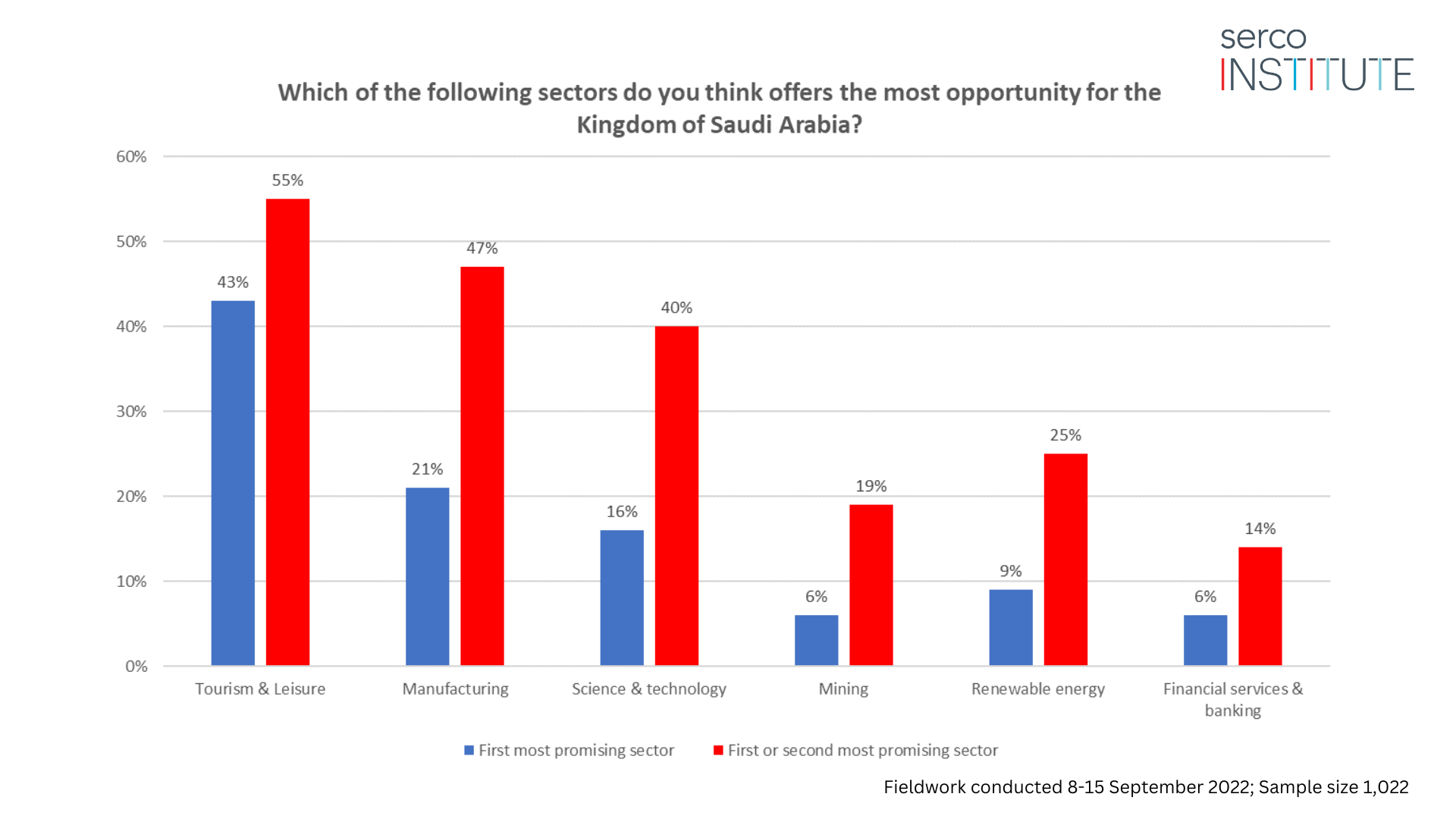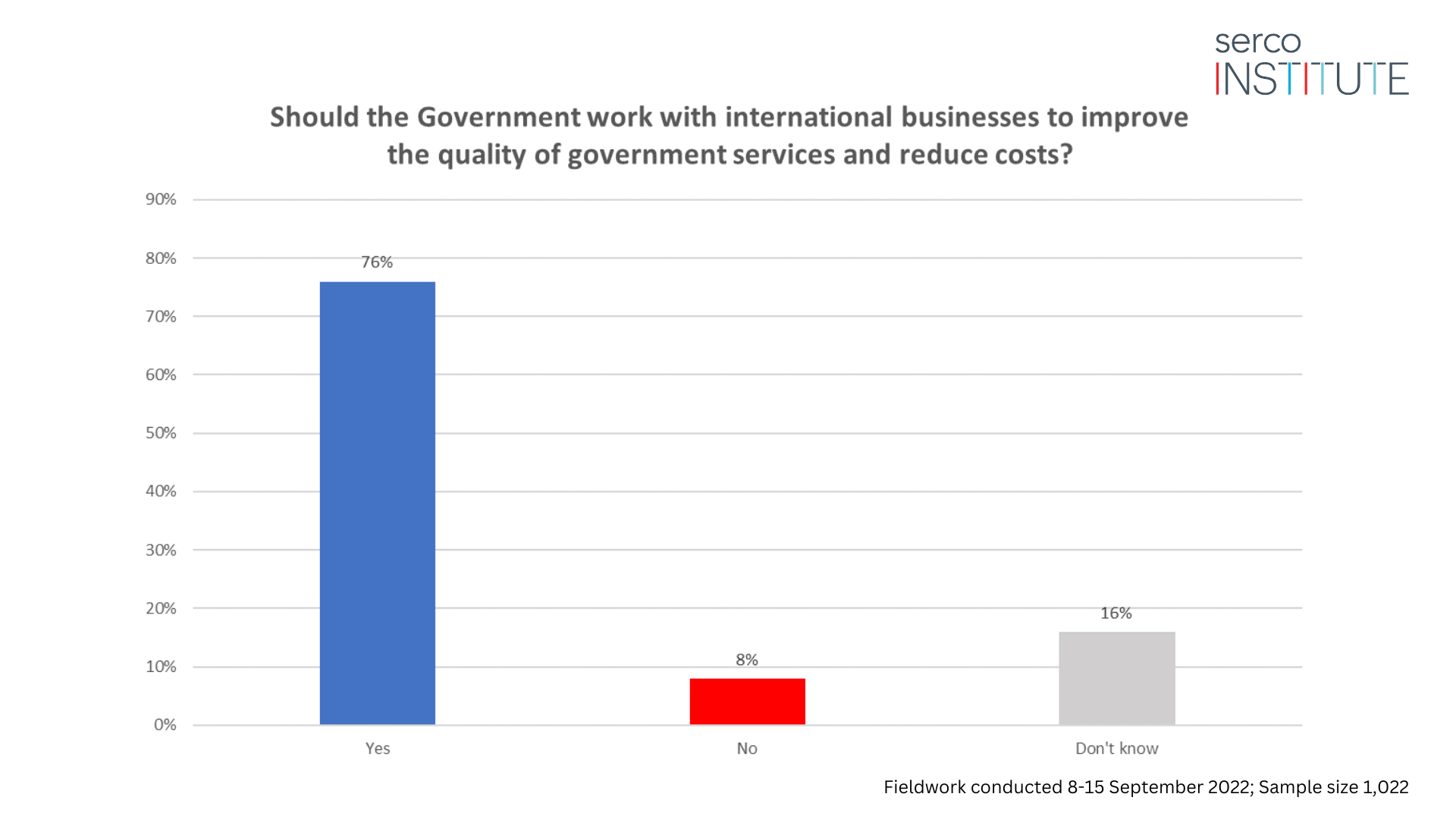
Saudi Arabia’s transformation under Vision 2030, as it transitions away from oil revenues, is now well documented. Key to this modernisation drive is tourism. By the end of the decade, Saudi Arabia wants to attract 100 million visitors to the country and the tourism sector to account for 10% (up from 3% currently) of GDP, and one in 10 jobs.
However, whilst some Western media outlets have reported on uncertainties by some to the speed and scale of the changes, research by global public services think tank the Serco Institute shows that a booming tourism and hospitality industry is popular amongst the Saudi public, with many embracing the promise of the industry as the economy opens to the world.
The Institute’s survey, conducted with independent polling experts at Kantar, polled more than 1,000 adults aged 18-54 living in Saudi Arabia. When asked to rank a series of economic sectors by how much opportunity they offer to the Kingdom, 43% of respondents picked ‘tourism and leisure’. Overall, 55% of all respondents agreed ‘tourism and leisure’ is either the first or second most promising sector in the KSA economy.

The research makes the hospitality industry, by some distance, the sector most viewed as important to the Saudi economy by the people of the country itself. Following ‘tourism and leisure’ at 43%, the next most promising sector, in the eyes of the KSA population, is ‘manufacturing’, at 21%. The polling results would indicate, therefore, that the Saudi public approve of their government’s decision to prioritise tourism as a pillar of its economic diversification strategy.
Vision 2030 calls Saudi the ‘final frontier’ in tourism, and its people agree. By leveraging its history, natural landscapes and other advantages, Saudi Arabia can achieve its goals and build on the tens of millions of guests who already visit the Kingdom every year.
The speed with which tourism projects are developing in Saudi Arabia demonstrate that the KSA Government knows the industry’s potential, and its role in Vision 2030. Riyadh’s ambition is best encapsulated by giga-projects such as Neom, the mega-development aiming to attract one million visitors by 2025. No development in the country is more ambitious in its scope and scale, and these giga-city’s project epitomise the future of tourism in Saudi.
Sindalah, a Neom island within the Red Sea, is currently in pole position to become one of Saudi’s premier beach holiday destinations. With state-of-the-art marine facilities, Sindalah is expected to become a fixture in the international yachting season and to accommodate all kinds of luxury vessels and superyachts.
There is much the private sector has to offer in these giga projects. The Neom CEO, Nadhmi Al-Nasr, has said he is keen to take full advantage of the international private sector to make Neom a success. The Institute’s polling research shows the Saudi population also supports this, with over three in four (76%) of respondents agreeing that the KSA Government should work with international businesses to improve government services and reduce costs.

Ben O’Keeffe, Deputy Director at the Serco Institute, said: “Tourism and hospitality is an important opportunity for Saudi to promote itself positively internationally and will play a contribution to the perceptions of the Kingdom from both those who visit and those watching developments across the globe. Therefore, it is important to get it right; combining the experience, knowledge, and general operational might of private sector organisations, with excellent government services is the best possible approach to creating the world-class facilities set out as part of Vision 2030.”
There is an exciting partnership unfolding in Saudi Arabia between the private and the public sector. The private sector and the expertise it can bring can be an important asset to KSA policymakers as they work to fulfil the ideals set out in Vision 2030 and help Saudi Arabia realise its full potential as one of the premier luxury holiday destinations of the 21st century.